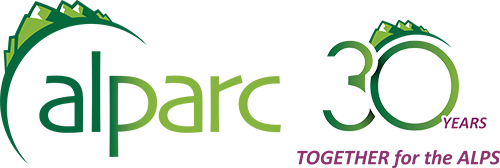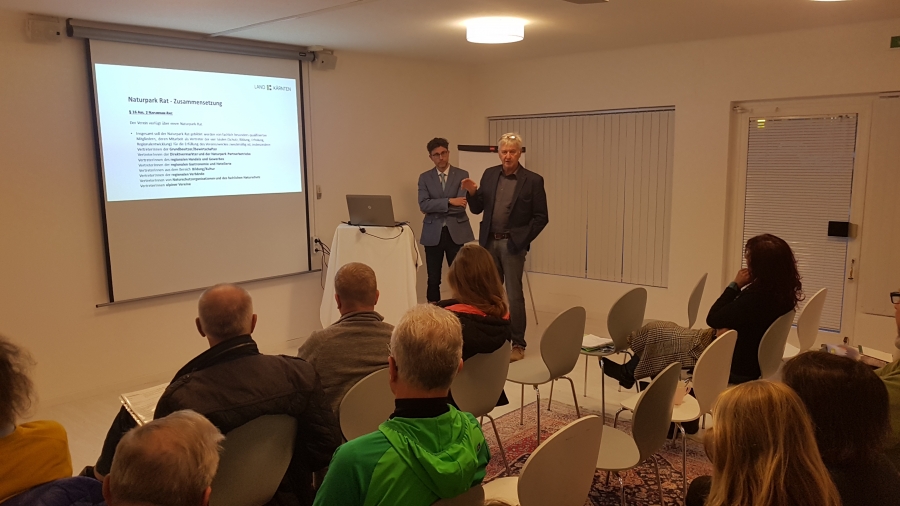ALPARC is currently carrying out the Destination Parks project, which aims to promote the exchange of Alpine park destinations on sustainable tourism and to develop a common positioning of these regions in Alpine tourism. In October and December, regional exchanges took place in three best practise regions: the Queyras Nature Park in the Southern French Alps, the Gesäuse National- and Nature Park Region in Styria and the Dobratsch Nature Park in Carinthia.
In France, in the Queyras, the participants exchanged notably on the development of sustainable products for park tourism and their marketing (target groups, nature-oriented activities and packages). The marketed tourism products are tightly linked to the natural and cultural heritage of the Queyras valley. The visits to the regions in Carinthia and Styria were successfully organized by ALPARC as a study trip: In the Gesäuse region, the exchange focused primarily on regional branding and cooperation (for whom, how and what). The presentation of the successful development of the "Gesäuse" brand by the regional tourism organisation made the exchange very concrete and the discussions highlighted important success factors. At the Dobratsch, Villach's local mountain in Carinthia, the participants were then given a lively demonstration of what the future of low altitude ski resorts in the Alps could look like. Since 2002, the local stakeholders have positioned the Nature Park as a sustainable nature showplace (NaturSchauPlatz) for everyone, whereby the tourism strategy is coupled with a holistic visitor guidance concept. As part of the "Magische Momente" (Magic Moments) campaign, nature-based tourism offers are cross-marketed in Carinthia's nature parks.
The exchanges in the three regions have provided the participants with many good examples of a more sustainable Alpine tourism. In all three regions, success factors for the cooperation between tourism organisations and protected area managements as well as for the development of partner programmes also came to light. The partner programmes in particular are extremely important for sustainable tourism and the valorisation of regional production, as they can promote ownership of the protected area idea among locals and visitors alike.
The project is carried out with support of the Federal Office for the Environment (BAFU, Switzerland).


